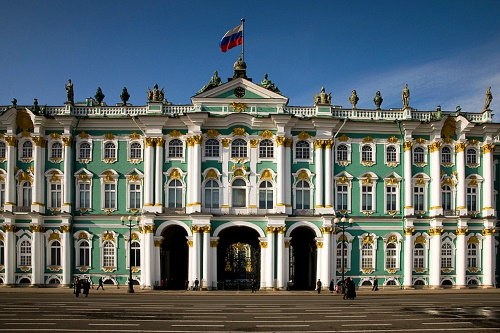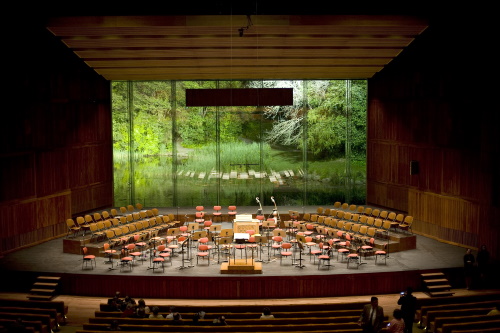Saturday, 3 December 2022
Is it really so hard to understand?
Sunday, 2 October 2022
The mental health of museum workers in Portugal: who cares?
 |
Aug 29, 2022; Columbus, OH, USA; Columbus Museum of Art employees and supporters rally outside the museum before handing over a letter to management requesting voluntary recognition of the CMA Workers United union. Mandatory Credit: Adam Cairns - The Columbus Dispatch
“For the past several months the YBCA leadership team has been grappling with the unprecedented impacts and volatility caused by the COVID-19 pandemic.
(…) Today, because of these impacts, it is with a heavy heart that I announce the elimination of 27 staff positions at YBCA. This represents more than a third of our staff, primarily those in positions that are directly tied to live events and activities which are not operational for the foreseeable future. As an organization that cares deeply about its employees, we held off on making these changes as long as our finances would allow. We also carefully considered equity in all of our decision making.
Monday, 18 July 2022
Solidarity in action
In the last 18 months, I have had the privilege of being part of an international network of museum professionals called “Solidarity in Action”. In the last year, I am also a member of the network’s advisory board. Together with the lessons taught by the pandemic, this amazing group of people (led by a tireless and motivating Bernadette Lynch) has given me the opportunity to go so much deeper into thinking and practicing solidarity. It has also allowed me to fully understand the word in my mother language, the language one “feels” the most.
Sunday, 19 June 2022
Who's afraid of decolonisation?
 |
| Humboldt Forum, Berlin (Photo: Maria Vlachou) |
"Who's afraid of decolonisation?" is the title of a training course which will be organised in September by NEMO – Network of European Museum Organisations, and hosted by the UK Museums Association, SS Great Britain and Bristol Museums. For those who don’t remember, Bristol is the city where in June 2020 the statue of transatlantic slave trader Edward Colston was toppled and later put into display (but lying down) in the M Shed Museum, the city museum. In January 2022, a jury found four of the people who had helped topple the statue – the so-called “Colston Four” – not guilty of criminal damage.
Wednesday, 18 May 2022
Shall we run together? 40th anniversary of Teatro Art'Imagem
 |
| Photo: Nuno Ribeiro |
From 10 to 12 May, I participated in the meeting 40 Years of Theatre: How theatre has developed in the last 40 years in Portugal, celebrating the anniversary of Teatro Art’Imagem. On the first day, we attended the play “Ai o Medo Que (Nós) Temos de Existir”, the company’s 117th creation. In the following days, we had the opportunity to reflect on four themes:
Panel 1: Theatre and Intervention
with
Sara Barros Leitão, José Leitão, Rita Alves Miranda and José Soeiro
Panel 2: Theatre: Praxis and the Academia
with Fernando Matos Oliveira
(University of Coimbra), António Capelo (ACE), Manuela Bronze (ESMAE),
Francesca Rayner (University of Minho) and Eugénia Vasques
Panel 3: Theatrical Decentralisation
with Helena Santos, Jorge
Baião (Dramatic Center of Évora), Rui Madeira (Braga Theater Company), Magda
Henriques (Comédias do Minho) and Américo Rodrigues (DGArtes)
Panel 4: Minorities and Theatre
with
Flávio Hamilton, Zia Soares, Marta Lança, Francesca Negro, Vanesa Sotelo and
Maria João Vaz
It was up to me to make the closing comments, sharing my reflections on what was discussed over the two days. Here they are:
Saturday, 7 May 2022
Whose story is it to tell?
 |
| National Museum of African-American History and Culture, Washington D.C. (Photo: Justin T. Gellerson / NYT) |
I first heard of Emmet Till in 2017, when Dana Schutz’s painting “Open Casket”, on display at the Whitney Biennale, sparked a huge controversy. Emmet Till was brutally murdered, lynched, in 1955, after being accused of having offended a white woman in her grocery store. This murder boosted the Civil Rights Movement in the US. Emmet's mother, Mamie Till, asked that the coffin remain open during her son's funeral for people to see. Her words welcome visitors to the National Museum of African American History and Culture: “Let the people see what I have seen. I think everybody needs to know what had happened to Emmet Till.”
Monday, 7 March 2022
A few more thoughts on the cultural boycott
 |
| State Hermitage Museum |
I follow intensely the
news about the invasion in Ukraine, thinking of ways in which we could
contribute and be useful, both as individuals and as professionals in the
cultural sector. My starting point is that Culture is anything but apolitical
and, within this context, one of the most controversial topics is that of the cultural
boycott.
Things are moving fast. Just three days ago, I wrote that I wasn’t aware of any formal action to cancel Russian artists just because they were Russian or to remove Russian composers from concert programmes. Then, on Saturday I read Javier C. Hernández’s article in The New York Times about Russian artists being expected to “clarify their position” regarding Putin; about young pianist Alexander Malofeev’s concert being cancelled in Vancouver “for his own safety”; or the Polish National Opera dropping a production of Mussorgsky’s “Boris Godunov… This is definitely how things can get out of hand. Malofeev himself wrote on Facebook that “The truth is that every Russian will feel guilty for decades because of the terrible and bloody decision that none of us could influence and predict.” I wonder whether it was “satisfactory” enough…
Friday, 4 March 2022
Cultural boycott
 |
| Elena Kovalskaya. Screenshot from Facebook. |
A few days ago, thousands of Russian artists signed an open letter denouncing the invasion in Ukraine. “On behalf of our professional community, it is important to say that further escalation of the war will result in irreversible consequences for workers in culture and the arts. Engagement with culture and the arts will be almost impossible in these conditions.”
It is impossible, for people on both sides and beyond; for all of us. It is impossible in the sense that the show can’t simply go on and it cannot be business as usual. It just cannot.
Wednesday, 23 February 2022
The cultural habits… of the Portuguese cultural organisations
“Many people are uncomfortable with the label ‘the arts’ and associate it only with either the visual arts or ‘high art’, such as ballet or opera. (…) At the same time, most people in this country have active cultural lives and value opportunities to be creative.” These two sentences were not taken from the Gulbenkian Foundation's study on the cultural habits of the Portuguese. They were taken from Arts Council England´s Let's Create document, which presents its strategy for the 2020-2030 decade. In the Portuguese context, the former sentence sounds very familiar; the Gulbenkian study does not confirm the latter, but it could be a wish. Will it…?
Thursday, 10 February 2022
Having time, sparing time
 |
| S. Miguel, Azores (Photo: Maria Vlachou) |
A few days ago, I read an interview with Greek film director Sotiris Tsafoulias, in which he said: “Being an artist is not a profession. A woman who has five children, no husband, cleans stairs and still puts a bowl of water for a stray dog or looks at us and says 'good morning', to me she is an artist. A person does not become an artist when they pick up a microphone, a brush or a pen. The way a person deals with ugliness, the way they metabolise it and give it back as goodness or light, the way they position themselves in the darkest moments of their life, for me, this is what makes a person an artist, regardless of profession."



